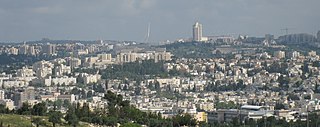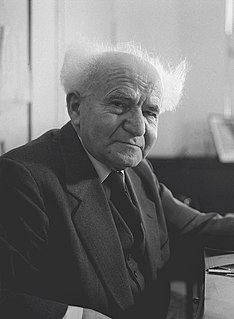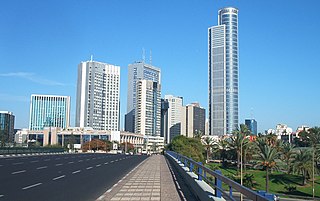The Land of Israel, also known as the Holy Land or Palestine, is the birthplace of the Jewish people, the place where the final form of the Hebrew Bible is thought to have been compiled, and the birthplace of Judaism and Christianity. It contains sites that are sacred to many Abrahamic religions, including Judaism, Samaritanism, Christianity, Islam, Druzism, and the Baháʼí Faith. The region has come under the sway of various empires and, as a result, has historically hosted a wide variety of ethnic groups. The adoption of Christianity by the Greco-Roman world under the Roman Empire in the 4th century led to a Christian majority in the Levant, which remained largely unchallenged until the Arab conquest of the region following the rise of Islam in the 7th century. It persisted for another six centuries as Muslim rule was consolidated despite various Christian military expeditions; by the end of the Crusader period in 1291, the Levant had shifted towards a Muslim majority. By the 13th century, Arabic had become the region's clear dominant language. It was individually first a part of the Mamluk Sultanate, and after 1516, a Syria-region province of the Ottoman Empire. Muslim rule over the Land of Israel ended during World War I, with the successful Sinai and Palestine campaign of the Allies leading to the partitioning of the Ottoman Empire and the establishment of British rule.

Jerusalem is a city in Western Asia. Situated on a plateau in the Judaean Mountains between the Mediterranean and the Dead Sea, it is one of the oldest cities in the world, and is considered holy for the three major Abrahamic religions: Judaism, Christianity, and Islam. The city straddles the Green Line between Israel and the West Bank; both Israelis and Palestinians claim Jerusalem as their capital. Israel controls the entire city and maintains its primary governmental institutions there while the Palestinian National Authority and Palestine Liberation Organization ultimately foresee it as the seat of power for the State of Palestine. Due to this long-running dispute, neither claim is widely recognized internationally.

The Six-Day War, also known as the June War, the 1967 Arab–Israeli War or the Third Arab–Israeli War, was an armed conflict fought from 5 to 10 June 1967 between Israel and a coalition of Arab states primarily comprising Jordan, Syria and Egypt.

The Yom Kippur War, also known as the Ramadan War, the October War, the 1973 Arab–Israeli War, or the Fourth Arab–Israeli War, was an armed conflict fought from 6 to 25 October 1973 between Israel and a coalition of Arab states led by Egypt and Syria. The majority of combat between the two sides took place in the Sinai Peninsula and the Golan Heights—both of which were occupied by Israel in 1967—with some fighting in African Egypt and northern Israel. Egypt's initial objective in the war was to seize a foothold on the eastern bank of the Suez Canal and subsequently leverage these gains to negotiate the return of the rest of the Israeli-occupied Sinai Peninsula.

The Israel Defense Forces, alternatively referred to by the Hebrew-language acronym Tzahal (צה״ל), is the national military of the State of Israel. It consists of three service branches: the Israeli Ground Forces, the Israeli Air Force, and the Israeli Navy. It is the sole military wing of the Israeli security apparatus, and has no civilian jurisdiction within Israel. The IDF is headed by the Chief of the General Staff, who is subordinate to the Israeli Defense Minister.

The Israeli–Palestinian conflict is one of the world's most enduring conflicts, beginning in the mid-20th century. Various attempts have been made to resolve the conflict as part of the Israeli–Palestinian peace process, alongside other efforts to resolve the broader Arab–Israeli conflict. Public declarations of claims to a Jewish homeland in Palestine, including the First Zionist Congress of 1897 and the Balfour Declaration of 1917, created early tensions in the region. Following World War I, the Mandate for Palestine included a binding obligation for the "establishment in Palestine of a national home for the Jewish people". Tensions grew into open sectarian conflict between Jews and Arabs. The 1947 United Nations Partition Plan for Palestine was never implemented and provoked the 1947–1949 Palestine War. The current Israeli-Palestinian status quo began following Israeli military occupation of the Palestinian territories in the 1967 Six-Day War.

Shimon Peres was an Israeli politician who served as the ninth president of Israel from 2007 to 2014 and as the eighth prime minister of Israel from 1984 to 1986 and from 1995 to 1996. He was a member of twelve cabinets and represented five political parties in a political career spanning 70 years. Peres was elected to the Knesset in November 1959 and except for a three-month-long hiatus in early 2006, was in office continuously until he was elected president in 2007. At the time of his retirement in 2014, he was the world's oldest head of state and was considered the last link to Israel's founding generation.

Benjamin "Bibi" Netanyahu is an Israeli politician who served as the ninth prime minister of Israel from 1996 to 1999 and from 2009 to 2021. Netanyahu currently serves as Leader of the Opposition and as the chairman of the Likud – National Liberal Movement. He served in office for a total of 15 years, making him the longest-serving Israeli prime minister in history. He was also the first prime minister to be born in Israel after its Declaration of Independence.

The Suez Crisis, or the Second Arab–Israeli war, also called the Tripartite Aggression in the Arab world and the Sinai War in Israel, was an invasion of Egypt in late 1956 by Israel, followed by the United Kingdom and France. The aims were to regain control of the Suez Canal for the Western powers and to remove Egyptian president Gamal Abdel Nasser, who had just swiftly nationalised the foreign-owned Suez Canal Company, which administered the canal. After the fighting had started, political pressure from the United States, the Soviet Union and the United Nations led to a withdrawal by the three invaders. The episode humiliated the United Kingdom and France and strengthened Nasser.

David Ben-Gurion was the primary national founder of the State of Israel and the first Prime Minister of Israel. Adopting the name of Ben-Gurion in 1909, he rose to become the preeminent leader of the Jewish community in British-ruled Mandatory Palestine from 1935 until the establishment of the State of Israel in 1948, which he led until 1963 with a short break in 1954–55.

Hummus is a Middle Eastern dip, spread, or savory dish made from cooked, mashed chickpeas blended with tahini, lemon juice, and garlic. The standard garnish in the Middle East includes olive oil, a few whole chickpeas, parsley, and paprika.

Maccabi Haifa Football Club is an Israeli professional football club, based in the city of Haifa, a section of Maccabi Haifa sports club. The club plays in the Israeli Premier League. Maccabi Haifa home games are played at Sammy Ofer Stadium. The stadium, which is shared with rivals Hapoel Haifa, is the second largest in Israeli football, with a capacity of 30,780.

Aliyah is the immigration of Jews from the diaspora to, historically, the geographical Land of Israel, which is in the modern era chiefly represented by the State of Israel. Traditionally described as "the act of going up", moving to the Land of Israel or "making aliyah" is one of the most basic tenets of Zionism. The opposite action—emigration by Jews from the Land of Israel—is referred to in the Hebrew language as yerida. The Law of Return that was passed by the Israeli parliament in 1950 gives all diaspora Jews, as well as their children and grandchildren, the right to relocate to Israel and acquire Israeli citizenship on the basis of connecting to their Jewish identity.

The Israel national football team represents Israel in international football, and is governed by the Israel Football Association (IFA).

The Diamond industry of Israel is an important world player in producing cut diamonds for wholesale. In 2010, Israel became the chair of the Kimberley Process Certification Scheme. As of 2016, cut diamonds constituted 23.2% of Israel's total exports and they were the country's biggest export product, amounting to 12% of the world's production.

Shakshouka is a Maghrebi dish of eggs poached in a sauce of tomatoes, olive oil, peppers, onion and garlic, commonly spiced with cumin, paprika and cayenne pepper. According to Joan Nathan, shakshouka originated in Ottoman North Africa in the mid-16th century after tomatoes were introduced to the region by Hernan Cortés as part of the Columbian exchange.

Israel, officially the State of Israel, is a country in Western Asia. It is situated on the southeastern shore of the Mediterranean Sea and the northern shore of the Red Sea, and shares borders with Lebanon to the north, Syria to the northeast, Jordan to the east, and Egypt to the southwest; it is also bordered by the Palestinian territories of the West Bank and the Gaza Strip to the east and west, respectively. Tel Aviv is the economic and technological center of the country, while its seat of government is in its proclaimed capital of Jerusalem, although Israeli sovereignty over East Jerusalem is unrecognized internationally.

Israeli cuisine comprises both local dishes and dishes brought to Israel by Jews from the Diaspora. Since before the establishment of the State of Israel in 1948, and particularly since the late 1970s, an Israeli Jewish fusion cuisine has developed.

Israeli couscous, is toasted pasta in tiny balls, developed in Israel in the 1950s when rice was scarce due to austerity in Israel. Despite the name in English, it is not a type of couscous.

Israel Mobolaji Odunayo Oluwafemi Temitayo Owolabi Adesanya is a Nigerian-born New Zealand professional mixed martial artist, kickboxer, and former boxer with multiple championships in all three disciplines. As a mixed martial artist, he is currently signed to the Ultimate Fighting Championship (UFC), where he is the current UFC Middleweight Champion. In kickboxing, he is a former Glory Middleweight Championship title challenger. As of 12 April 2022, he is #3 in the UFC men's pound-for-pound rankings.


















